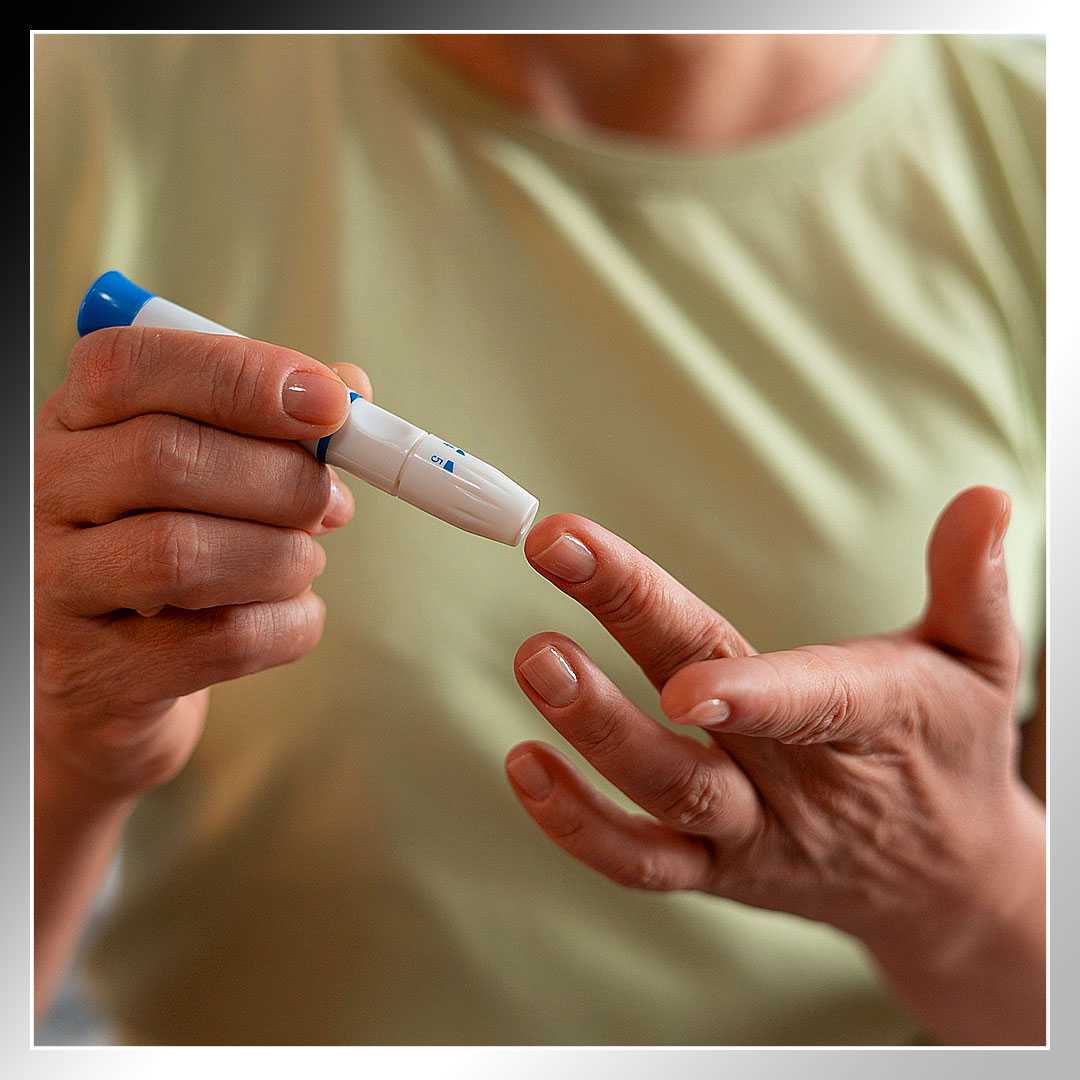
Stem cell injections have become a cutting-edge solution for treating a wide range of medical conditions, from joint pain to chronic illnesses. Mexico is quickly becoming a top destination for these treatments, offering high-quality care at a fraction of the cost compared to other countries.
In this blog post, we’ll explore how stem cell injections work, why Mexico is a popular choice for patients seeking regenerative therapies, and what you need to know about the treatment options available. Whether you’re dealing with arthritis, injuries, or degenerative diseases, stem cell injections in Mexico could be a life-changing option for your health and recovery.
Cost of Stem Cell Injections In Mexico
The cost of stem cell injections in Mexico is significantly more affordable than in countries like the US and Europe, making it a popular choice for medical tourists. On average, the cost of stem cell injections in Mexico ranges from $3,000 to $10,000, depending on the condition being treated and the type of stem cell therapy used.
For basic treatments like joint or arthritis injections, the price may start around $3,000 to $6,000. More advanced procedures, such as those for neurological disorders or autoimmune diseases, can range from $7,000 to $10,000 or more.
| Type of Stem Cell Injection | Cost Range (USD) |
|---|
| Stem Cell Injections for Arthritis/Joint Pain | $3,000 – $6,000 |
| Stem Cell Injections for Spinal Injuries | $5,000 – $9,000 |
| Stem Cell Injections for Neurological Disorders | $7,000 – $10,000 |
| Stem Cell Injections for Autoimmune Diseases | $6,000 – $9,000 |
| Anti-Aging Stem Cell Injections | $4,000 – $7,000 |
| Stem Cell Injections for Diabetes | $5,000 – $8,000 |
| Stem Cell Injections for Heart Disease | $7,000 – $10,000 |
Factors affecting the cost in Mexico include:
-
Several factors can affect the cost of stem cell injections in Mexico, including:
-
Type of Condition: More complex conditions, such as neurological disorders or heart disease, may require more advanced treatments, increasing the overall cost.
-
Type of Stem Cells: The use of autologous (from the patient’s own body) or allogeneic (donor-derived) stem cells can impact the price. Donor-derived stem cells typically cost more due to the processing involved.
-
Clinic Reputation and Accreditation: Clinics with a strong reputation, international accreditations, and highly experienced medical staff may charge higher fees for their services due to the quality of care provided.
-
Treatment Protocol: Some patients may require multiple sessions or more specialized procedures, which can raise the total cost of the treatment.
-
Technology and Equipment: Clinics that use state-of-the-art equipment and cutting-edge technologies may have higher prices to cover the operational costs of maintaining these advanced tools.
-
Location of the Clinic: Clinics located in major cities or tourist areas may have higher prices due to higher operational costs, while those in smaller or less popular locations may offer more affordable treatments.
-
Post-Treatment Care: Some clinics include post-treatment recovery packages, accommodation, and follow-up care, which can influence the overall price of the treatment.
Best Stem Cell Clinics in Mexico
Sportmed Centro Medico in Guadalajara, Mexico, is a premier medical facility specializing in the treatment of sports injuries, joint regeneration, and orthopedic conditions using advanced stem cell therapies. Known for its personalized care and use of cutting-edge regenerative techniques, Sportmed is a top destination for athletes and individuals looking to recover from physical injuries without the need for surgery. The clinic’s experienced medical staff focuses on helping patients restore mobility and function efficiently.
Stem Health, also located in Guadalajara, is a renowned clinic offering a broad range of stem cell treatments for conditions such as neurological disorders, autoimmune diseases, and chronic illnesses. The clinic is highly regarded for its innovative therapies and individualized treatment plans. Stem Health’s medical team is experienced in regenerative medicine, providing world-class care to patients seeking non-invasive treatment options for complex medical issues.
MexStemCells Clinic, based in Mexico City, is a leader in regenerative medicine, offering cutting-edge stem cell therapies for a wide range of conditions, including arthritis, diabetes, neurological disorders, and anti-aging treatments. The clinic’s reputation is built on its high standards of care and experienced medical professionals, making it a top choice for both local and international patients. MexStemCells is known for delivering personalized, patient-centered treatments aimed at improving long-term health and well-being.
Progencell - Stem Cell Therapies in Tijuana, Mexico, specializes in stem cell treatments for degenerative diseases, autoimmune disorders, and chronic conditions. This clinic is a popular choice for patients seeking alternative treatments for conditions like multiple sclerosis, Parkinson’s disease, and diabetes. Progencell’s focus on advanced therapies and its experienced team of medical experts make it a top destination for patients from around the world.
Stem Solutions, located in San Pedro Garza Garcia, Mexico, is known for providing advanced stem cell therapies for a variety of conditions, including orthopedic injuries, neurological disorders, and chronic diseases. With a commitment to personalized care and state-of-the-art technology, Stem Solutions offers high-quality treatments designed to improve patient outcomes and quality of life.
Visani Stem Cells in Puebla, Mexico, is a leading clinic specializing in regenerative treatments for both chronic diseases and cosmetic procedures. Visani is known for its focus on anti-aging stem cell therapies, along with treatments for conditions like arthritis, diabetes, and neurological disorders. The clinic’s modern facilities and dedicated medical team make it a popular choice for those seeking cutting-edge stem cell treatments in Mexico.
Disease Treated with Stem Cell Therapy
Here are the diseases treated with stem cell therapy in brief:
Arthritis: Stem cell therapy helps regenerate damaged cartilage and reduce inflammation, offering pain relief and improved joint function for patients with osteoarthritis and rheumatoid arthritis. This treatment can delay or even prevent the need for joint replacement surgeries.
Diabetes: Stem cell therapy regenerates insulin-producing cells in the pancreas, helping patients with type 1 and type 2 diabetes better regulate blood sugar levels, potentially reducing their reliance on insulin and improving overall metabolic control.
Parkinson’s Disease: In Parkinson’s patients, stem cells can replace damaged dopamine-producing neurons, reducing symptoms such as tremors and stiffness, improving motor function, and potentially slowing disease progression.
Multiple Sclerosis (MS): Stem cell therapy repairs the damaged myelin sheath that surrounds nerves, helping restore function, reduce the frequency of MS flare-ups, and improve mobility and cognitive function in patients.
Spinal Cord Injuries: Stem cell treatments are used to regenerate nerve cells in spinal cord injury patients, potentially restoring motor function, sensation, and improving quality of life in those with partial or complete paralysis.
Heart Disease: Stem cell therapy helps regenerate damaged heart tissue, improving heart function in patients suffering from heart disease, heart failure, or those recovering from a heart attack, while reducing symptoms like shortness of breath and fatigue.
Autoimmune Diseases: Stem cell therapy helps reset the immune system, reducing inflammation and autoimmunity in conditions such as lupus and Crohn’s disease, leading to fewer symptoms and better disease management.
Liver Disease: For patients with conditions like cirrhosis and hepatitis, stem cells can regenerate damaged liver tissue, improving liver function, reducing scarring, and slowing disease progression.
Chronic Obstructive Pulmonary Disease (COPD): Stem cell therapy can help regenerate lung tissue, improve lung capacity, and reduce inflammation, leading to better breathing, increased stamina, and reduced dependency on oxygen for COPD patients.
Alzheimer’s Disease: Still in experimental stages, stem cell therapy for Alzheimer’s aims to regenerate neurons and slow cognitive decline, offering potential improvements in memory and brain function.
Stroke: Stem cells can promote the growth of new neurons and blood vessels in stroke patients, potentially improving motor function, speech, and cognitive abilities affected by the brain damage caused by a stroke.
Muscular Dystrophy: Stem cell therapy can regenerate muscle tissue in patients with muscular dystrophy, improving strength, mobility, and reducing the rate of muscle degeneration.
Osteoporosis: In patients with osteoporosis, stem cell therapy helps regenerate bone tissue, increasing bone density and reducing the risk of fractures, offering a stronger and healthier skeletal system.
Traumatic Brain Injuries (TBI): Stem cell therapy can help repair damaged brain tissue in patients suffering from traumatic brain injuries, improving cognitive function, memory, and motor skills, with potential for significant recovery.
Autism: In children with autism spectrum disorders (ASD), stem cell therapy can reduce brain inflammation and improve neurological function, leading to better communication, social skills, and cognitive abilities.
Eye Diseases: Stem cells can regenerate damaged retinal cells in conditions like macular degeneration and retinitis pigmentosa, helping restore vision and slow the progression of degenerative eye diseases.
Different Kinds of Stem Cell Treatments in Mexico
Mexico offers a wide range of advanced stem cell treatments to address various medical conditions. Here are some of the most popular types of stem cell therapies available in Mexico:
Autologous Stem Cell Therapy
- Description: This type of therapy uses stem cells from the patient’s own body, typically extracted from bone marrow or fat tissue. These cells are then processed and re-injected to promote healing and regeneration in the affected area.
- Common Uses: Arthritis, joint injuries, degenerative diseases, and cosmetic procedures.
Allogeneic Stem Cell Therapy
- Description: In this therapy, stem cells are sourced from a healthy donor rather than the patient. These donor cells can provide powerful regenerative properties, especially when the patient’s own cells are not viable.
- Common Uses: Immune disorders, neurological conditions, and chronic diseases.
Mesenchymal Stem Cell (MSC) Therapy
- Description: MSCs are multipotent cells that can differentiate into various types of cells, such as bone, cartilage, and muscle. They are commonly harvested from bone marrow, fat tissue, or umbilical cords.
- Common Uses: Orthopedic injuries, spinal cord injuries, cardiovascular diseases, and immune-related disorders.
Placental Stem Cell Therapy
- Description: Stem cells derived from the placenta are rich in growth factors and have regenerative properties. These cells can be used for a variety of medical conditions and are known for their immune-modulating abilities.
- Common Uses: Anti-aging treatments, autoimmune diseases, and skin regeneration.
Hematopoietic Stem Cell Transplant (HSCT)
- Description: This type of therapy focuses on using stem cells from bone marrow, blood, or umbilical cord blood to regenerate blood cells. It is often used for patients with blood-related conditions.
- Common Uses: Leukemia, lymphoma, and certain immune deficiencies.
Neural Stem Cell Therapy
- Description: Neural stem cells have the potential to regenerate neurons and are used to treat neurological conditions by repairing damaged nervous system tissues.
- Common Uses: Parkinson’s disease, multiple sclerosis, and spinal cord injuries.
Adipose-Derived Stem Cell Therapy
- Description: Stem cells are extracted from the patient’s fat tissue and re-injected to promote healing and repair. These cells are rich in mesenchymal stem cells and have strong regenerative potential.
- Common Uses: Joint regeneration, arthritis, cosmetic procedures, and soft tissue repair.
Embryonic Stem Cell Therapy
- Description: Embryonic stem cells have the ability to become any type of cell in the body, making them highly versatile for treating a range of conditions.
- Common Uses: Experimental treatments for degenerative diseases, neurological disorders, and certain cancers.
Umbilical Cord Stem Cell Therapy
- Description: Stem cells derived from umbilical cord blood are rich in hematopoietic and mesenchymal stem cells, which aid in tissue repair and immune system modulation.
- Common Uses: Autoimmune diseases, neurological disorders, and anti-aging treatments.
Exosome Therapy
- Description: Exosomes are tiny vesicles that stem cells release, containing growth factors and proteins that help in tissue repair and regeneration. They are used as a complementary therapy to enhance the effects of stem cell treatments.
- Common Uses: Anti-aging, chronic inflammation, and joint injuries.
Stem Cell Therapy in Mexico Reviews
We advise our future patients to always check the reviews and patient testimonials for the centers you wish to have your stem cell therapy. This may play an important role because the patients' experience can help you get an idea of how successful your treatment may be. Reviews and Testimonials for Stem Cell Therapy in Mexico will encourage you to visit a certain clinic and speak to the doctors. These testimonials will go a long way as experience is truly the best teacher.
FAQs
How much do stem cell injections cost in Mexico?
The cost of stem cell injections in Mexico typically ranges from $3,000 to $10,000, depending on the type of treatment and the condition being treated. The lower cost compared to countries like the US and Europe makes Mexico a popular destination for stem cell therapy.
Are stem cell injections in Mexico safe?
Yes, many clinics in Mexico follow international standards of care and are staffed by highly trained doctors. It’s important to choose accredited clinics with experienced medical professionals to ensure a safe and effective treatment.
What conditions can be treated with stem cell injections in Mexico?
Stem cell injections in Mexico can treat a variety of conditions, including arthritis, spinal cord injuries, diabetes, neurological disorders (such as Parkinson’s and multiple sclerosis), heart disease, and more. Stem cell therapies are also used for anti-aging treatments and chronic pain relief.
Is stem cell therapy in Mexico legal?
Yes, stem cell therapy is legal in Mexico and is regulated by health authorities. The country has become a leading destination for stem cell treatments due to its established regulatory framework and experienced clinics.
Why is stem cell therapy cheaper in Mexico?
The cost of stem cell therapy in Mexico is lower due to lower operational costs, less stringent regulations, and the country’s emphasis on medical tourism. Despite the lower prices, many clinics in Mexico offer high-quality care with advanced technology.
How do I choose the best stem cell clinic in Mexico?
When selecting a stem cell clinic in Mexico, look for internationally accredited facilities with experienced doctors, positive patient reviews, and a clear treatment plan. Researching the clinic’s track record, certifications, and success rates is also important for making an informed decision.
What types of stem cell therapies are available in Mexico?
Mexico offers various types of stem cell therapies, including autologous stem cell therapy (using the patient's own cells), allogeneic stem cell therapy (from a donor), and treatments using mesenchymal stem cells (from bone marrow, fat, or umbilical cord). The type of therapy depends on the condition being treated.
How long does it take to recover after stem cell injections in Mexico?
Recovery time after stem cell injections varies by patient and condition, but most individuals can resume normal activities within a few days. Some improvements may be seen within weeks, while full benefits of the treatment may take several months to become evident.
Can international patients easily travel to Mexico for stem cell therapy?
Yes, Mexico is a popular medical tourism destination, and international patients can easily travel to cities like Tijuana, Mexico City, and Guadalajara for stem cell therapy. Many clinics offer packages that include treatment, accommodation, and transportation for foreign patients.
How effective are stem cell injections in treating chronic conditions?
Stem cell injections have shown promising results in treating chronic conditions like arthritis, spinal injuries, and neurological disorders. While individual results vary, many patients report significant improvements in pain relief, mobility, and quality of life after undergoing treatment in Mexico.
If you wish to know more about Stem Cell injections in Mexico, or you wish to get a FREE quote for one of the clinics represented on PlacidWay, feel free to contact us using the button below!






.jpg)

.png)

.png)
.png)
